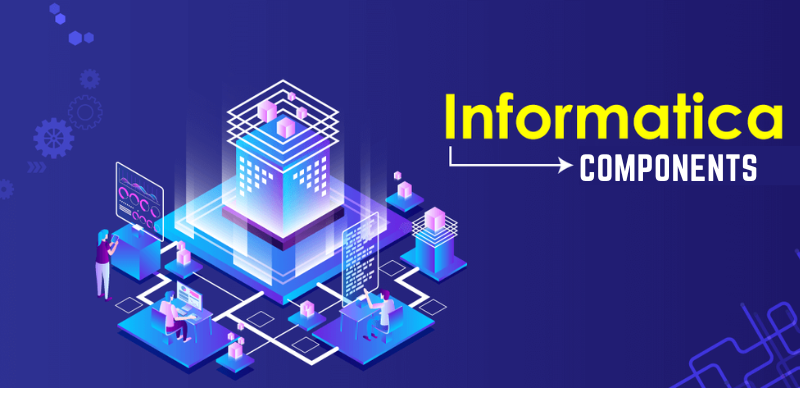
Organizations increasingly use cloud-based solutions to effectively manage and integrate their data in today’s data-driven business environment. To meet these objectives, Informatica, a renowned data integration and management solutions supplier, provides a robust platform called Informatica Cloud. Understanding Informatica Cloud’s architecture and how it supports data integration, transformation, and administration in the cloud is crucial for maximizing its capabilities. This blog will discuss “What are the Components of Informatica Cloud Architecture?”. Join Informatica Training in Chennai and acquire in-depth knowledge and practical skills in Informatica.
Components of Informatica Cloud Architecture
With the comprehensive platform Informatica Cloud, businesses can easily connect to diverse data sources, transform data, and load it into target systems, whether on-premises or in the cloud. Its architecture consists of several essential parts, each of which plays a particular part in the data integration process.
Cloud Agent
The Informatica Cloud Agent is an essential component of the Informatica Cloud architecture. It serves as a link between on-premises and cloud-based systems due to its portability and security. It establishes a secure connection with the Informatica Cloud service through your network. The Cloud Agent simplifies data transfer by enabling you to connect to numerous data sources within your organization’s network, including databases, applications, and files.
Informatica Cloud Services
Informatica Cloud Services provide the backbone for various Informatica Cloud offerings. These services include:
Informatica Cloud Data Integration: This service makes Data integration, transformation, and synchronization possible between many sources and targets. You can join Informatica Training and explore the power of cloud-based ETL with Informatica.
Informatica Cloud Application Integration: This solution focuses on application and service integration and helps automate corporate activities and procedures.
Informatica Cloud B2B Gateway: This solution, developed for business-to-business data sharing, enables safe and dependable contact with outside partners and suppliers.
Informatica Cloud API Management: With the help of this service, businesses can create, distribute, and maintain APIs, facilitating seamless data access and integration.
Data Integration Services
Data Integration Services perform data integration tasks, such as extraction, transformation, and loading (ETL). These services include:
Data Integration Services (DIS): DIS regulates data flow between various systems and handles data transformations. It offers a simple user interface for creating and carrying out ETL processes.
Mapping Designer: Using this DIS tool, you may create data mappings, transformations, and business rules to build data integration processes visually.
Secure Agent: Secure Agent is a Cloud Agent variant designed for data integration activities. Between on-premises systems and cloud settings, data is transferred safely.
Informatica Cloud Secure Agent
Secure data integration requires the Informatica Cloud Secure Agent as a critical component. It guarantees the confidentiality and privacy of data both in transit and at rest. The Secure Agent is adaptable to your organization’s needs and can operate on various operating systems, including Windows, Linux, and macOS.
Informatica Cloud Console
The primary hub for coordinating and keeping track of data integration processes is the Informatica Cloud Console. It offers a web-based user interface that enables users to:
Design and Schedule Jobs: Users can create and schedule data integration jobs, specifying the data sources, transformations, and targets.
Monitor Job Activity: The Console provides insights into job status, faults, and performance data while allowing real-time monitoring of job execution.
Manage Connections: Connections to numerous data sources and targets can be configured by users, ensuring seamless data integration.
View and Analyze Logs: Detailed logs and reports help troubleshoot issues and optimize data integration workflows.
Components of Informatica Cloud Architecture empower organizations to streamline data integration, transformation, and management in today’s cloud-centric world. By understanding the key components and capabilities of Informatica Cloud, businesses can harness its power to access, transform, and utilize data effectively. To learn Informatica, join Informatica Training Center Chennai and gain data integration and management expertise.